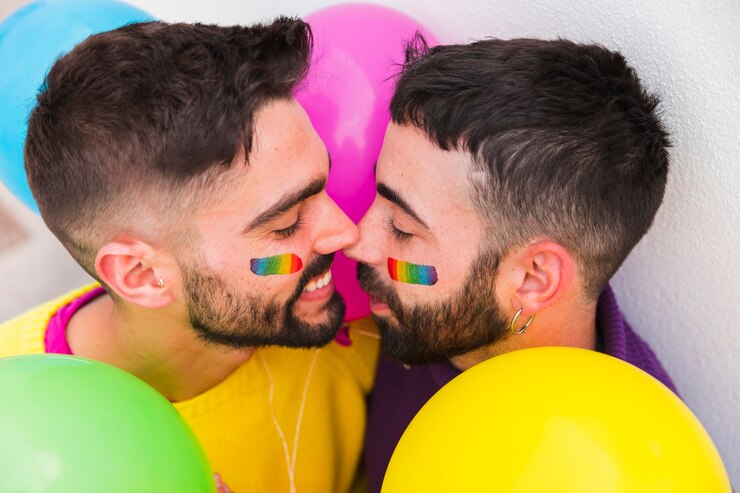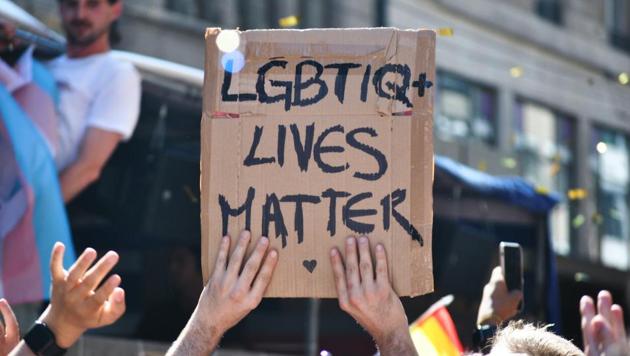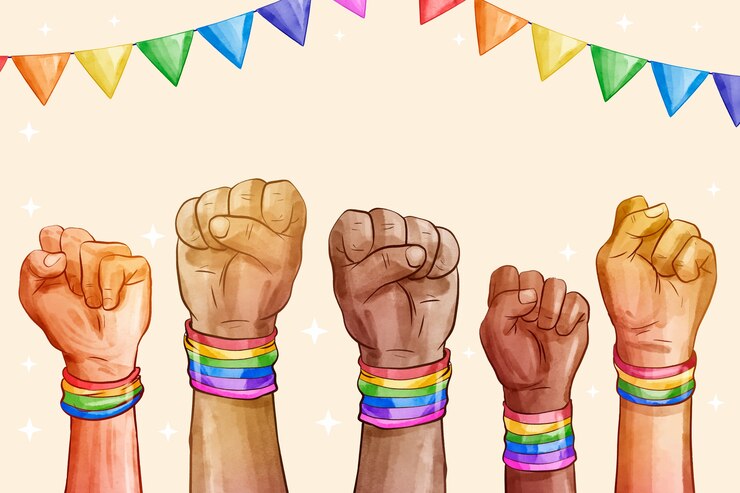How to Deal with Homophobia and Discrimination as a Homosexual Person

Table of Contents
Understanding Homophobia and Discrimination

Homophobia and discrimination have long been pervasive issues in society that significantly impact the lives of LGBTQ+ individuals. Understanding the root causes and consequences of these attitudes and behaviors is crucial for promoting a more inclusive and accepting world.
Homophobia refers to prejudice, fear, or discrimination against individuals who identify as LGBTQ+. It manifests in various forms, such as verbal and physical abuse, exclusion, and denial of rights. Discrimination, on the other hand, involves treating someone unfairly based on their sexual orientation or gender identity. It can occur in various settings, including education, healthcare, employment, housing, and public spaces.
Research consistently demonstrates the harmful effects of homophobia and discrimination on the mental health of LGBTQ+ individuals. According to a study by the National Alliance on Mental Illness, these individuals face higher rates of depression, anxiety, substance abuse, and suicidal ideation than their heterosexual counterparts. The constant stress, stigma, and rejection they experience contribute to these alarming statistics.
To combat homophobia and discrimination effectively, it is vital to educate ourselves and others about LGBTQ+ rights and advocacy. By acquiring accurate information, dispelling stereotypes, and challenging prejudice, we can promote understanding and empathy. Additionally, building a supportive network of friends and allies creates a safe space where LGBTQ+ individuals can be their authentic selves without fear of judgment or discrimination.
Overall, understanding the detrimental effects of homophobia and discrimination is a crucial step towards creating a more inclusive and accepting society. By advocating for LGBTQ+ rights, cultivating empathy, and supporting those affected, we can strive for a future free from prejudice and discrimination.
Recognizing the Impact of Homophobia and Discrimination on Mental Health

Homophobia and discrimination have long-lasting effects on an individual’s mental health. The constant fear of rejection, stigma, and marginalization can lead to significant psychological distress. Research has consistently shown that LGBTQ+ individuals who experience homophobia and discrimination are at a higher risk for developing mental health issues such as depression, anxiety, and substance abuse.
According to a study published in the American Journal of Public Health, lesbian, gay, and bisexual individuals are more than twice as likely to experience a mood or anxiety disorder compared to heterosexual individuals. Furthermore, transgender individuals face even greater mental health challenges, with rates of depression and suicidal ideation significantly higher than the general population.
The impact of homophobia and discrimination on mental health can be further understood by examining the concept of minority stress. Minority stress theory suggests that individuals from marginalized groups face unique stressors related to their minority status, which can accumulate and have a negative impact on their mental well-being. In the case of LGBTQ+ individuals, these stressors include prejudice, discrimination, and the constant need to conceal or defend their sexual orientation or gender identity.
It is crucial to recognize the detrimental effects of homophobia and discrimination on mental health and take proactive steps to address these issues. Creating inclusive environments, promoting acceptance and understanding, and advocating for LGBTQ+ rights are essential to combatting this ongoing problem. By working together, we can strive for a future where everyone can live free from the burden of discrimination and prejudice, and where mental well-being is a priority for all.
Building a Supportive Network of Friends and Allies

Building a supportive network of friends and allies is essential for individuals facing homophobia and discrimination. Having a strong support system can provide comfort, understanding, and a sense of belonging, which can greatly impact overall well-being. Engaging with friends and allies who are knowledgeable about LGBTQ+ issues can also be empowering, as they can help challenge stereotypes and advocate for equal rights.
When building a supportive network, it is important to seek out individuals who are open-minded and accepting. This may involve engaging in LGBTQ+ community events, joining support groups, or participating in online forums where like-minded individuals gather. Surrounding oneself with people who understand and respect different sexual orientations and gender identities is crucial in fostering an environment where one feels safe to be oneself.
Moreover, allies play a significant role in dismantling homophobia and discrimination. Allies are individuals who may not identify as LGBTQ+ but are supportive, empathetic, and willing to challenge societal norms and prejudice. They can be instrumental in advocating for LGBTQ+ rights and fostering inclusivity in diverse spaces. Allies can create safe environments by speaking up against homophobic remarks and actively engaging in conversations about LGBTQ+ issues. Building strong connections with allies helps create a more accepting society for everyone.
In conclusion, building a supportive network of friends and allies can provide immense support and validation for individuals experiencing homophobia and discrimination. By surrounding oneself with open-minded and accepting individuals, one can find comfort, understanding, and advocacy. Allies, in particular, have the power to challenge societal norms and foster inclusivity, creating safe spaces for LGBTQ+ individuals. Together, we can create a world that embraces diversity and values equal rights for all.
Educating Yourself on LGBTQ+ Rights and Advocacy
Educating yourself on LGBTQ+ rights and advocacy is essential in creating a more inclusive society where everyone can live without fear of discrimination or prejudice. By increasing your knowledge and understanding, you become better equipped to challenge and confront biases, actively promote equal rights, and support the LGBTQ+ community.
To start educating yourself, it is important to familiarize yourself with LGBTQ+ history, the struggles they have faced, and the progress that has been made. This knowledge can provide valuable context and help you appreciate the resilience and strength exhibited by the community. Understanding the legal frameworks protecting LGBTQ+ rights at local, national, and international levels is also crucial. Familiarize yourself with existing legislation and ongoing efforts to ensure comprehensive and equal rights for all individuals, regardless of their sexual orientation or gender identity.
Additionally, explore resources such as reputable websites, books, documentaries, and social media accounts that offer accurate information and insights into LGBTQ+ experiences. Engage with LGBTQ+ activists, advocates, and organizations, attending workshops, conferences, and seminars to deepen your understanding and become an ally in the fight for equality. By taking the initiative to educate yourself, you lay the foundation for advocating for LGBTQ+ rights and supporting positive change in your community.
This table summarizes key aspects of educating yourself on LGBTQ+ rights and advocacy:
| Aspect | Description |
|---|---|
| History of LGBTQ+ Rights | Educate yourself on the history of LGBTQ+ rights movements, including key events, milestones, and figures. Learn about the struggles and achievements of LGBTQ+ activists, organizations, and communities in advocating for equality, dignity, and inclusion. Explore historical contexts, such as the Stonewall Riots, the AIDS crisis, and the fight for marriage equality, that have shaped LGBTQ+ rights advocacy and legislation worldwide. Understanding the historical trajectory of LGBTQ+ rights movements provides important context for contemporary advocacy efforts and challenges. |
| LGBTQ+ Identities and Experiences | Familiarize yourself with diverse LGBTQ+ identities, experiences, and terminology. Learn about different sexual orientations, gender identities, and expressions within the LGBTQ+ spectrum, including lesbian, gay, bisexual, transgender, queer, intersex, asexual, and nonbinary identities. Explore personal narratives, literature, and media representations that reflect the lived experiences and diversity of LGBTQ+ individuals and communities. Recognize the intersections of LGBTQ+ identities with other aspects of identity, such as race, ethnicity, class, religion, disability, and nationality, which shape individuals’ experiences of discrimination and privilege. |
| Legal Framework and Policies | Understand the legal framework and policies related to LGBTQ+ rights and discrimination in your country or region. Familiarize yourself with anti-discrimination laws, hate crime legislation, marriage equality laws, adoption rights, healthcare policies, and other legal protections affecting LGBTQ+ individuals and families. Stay informed about ongoing legal battles, court decisions, and legislative initiatives impacting LGBTQ+ rights, and advocate for inclusive laws and policies that promote equality, dignity, and respect for all individuals, regardless of sexual orientation or gender identity. |
| Intersectionality and Allyship | Recognize the intersections of LGBTQ+ identities with other forms of oppression and privilege. Understand how factors such as race, ethnicity, class, religion, disability, and nationality intersect with sexual orientation and gender identity to shape individuals’ experiences of discrimination, access to resources, and opportunities for social and economic advancement. Practice intersectional allyship by amplifying marginalized voices, addressing systemic inequalities, and advocating for inclusive policies and practices that center the needs and perspectives of LGBTQ+ people from diverse backgrounds. |
| Resources and Organizations | Utilize resources and connect with organizations dedicated to LGBTQ+ rights and advocacy. Access educational materials, publications, websites, and online forums that provide information and support for LGBTQ+ individuals and allies. Seek out LGBTQ+ community centers, support groups, and social networks in your area where you can learn, share experiences, and engage in activism with like-minded individuals. Get involved with LGBTQ+ organizations, volunteer opportunities, or advocacy campaigns that align with your interests and values, and contribute to positive change in your community and beyond. |
| Dialogue and Engagement | Engage in dialogue and collaboration with LGBTQ+ individuals, allies, and communities. Listen to diverse perspectives, experiences, and concerns within LGBTQ+ communities, and strive to be an empathetic and supportive ally. Participate in LGBTQ+ events, pride celebrations, panel discussions, workshops, and educational forums that promote awareness, understanding, and solidarity. Use your voice and platform to advocate for LGBTQ+ rights and visibility in your personal and professional networks, challenging stigma, discrimination, and misconceptions wherever they arise. Foster meaningful connections and partnerships that advance the collective goals of LGBTQ+ equality, justice, and liberation. |
Developing Resilience and Self-Confidence
Developing resilience and self-confidence is crucial for individuals facing homophobia and discrimination. These negative experiences can significantly impact mental health and overall well-being. By building resilience, individuals can better navigate these challenges and develop a sense of self-assurance.
Resilience involves the ability to bounce back from adversity and persevere in the face of difficulties. It is not about avoiding or denying the issues at hand but rather finding ways to cope and grow stronger. Developing resilience requires a multifaceted approach, including emotional support, self-care practices, and acquiring problem-solving skills.
One strategy to enhance resilience is to build a supportive network of friends and allies who understand and respect your experiences. Surrounding yourself with accepting individuals who celebrate diversity can foster a sense of belonging and provide a safe space to express yourself. Additionally, educating yourself on LGBTQ+ rights and advocacy can empower you to confidently navigate discriminatory situations and advocate for your rights.
Developing self-confidence is also crucial in combating homophobia and discrimination. It involves recognizing your worth and embracing your identity without fear or shame. Cultivating self-confidence can be an ongoing process that includes self-reflection, self-acceptance, and setting healthy boundaries.
As you develop resilience and self-confidence, remember that seeking professional help is a valuable option. Counseling and therapy can provide a supportive and nonjudgmental environment for processing emotions, acquiring coping strategies, and enhancing overall well-being.
Assertive Communication: Responding to Homophobic Remarks
Responding to homophobic remarks can be a challenging and emotionally charged situation. However, assertive communication can be an effective approach to address these remarks while maintaining respect for yourself and others. When encountering homophobic remarks, it is important to remain calm and composed, even if you feel hurt or angry. Take a moment to collect your thoughts and remind yourself of your purpose in responding assertively – to educate and promote understanding.
Seeking Professional Help: Counseling and Therapy Options
Counseling and therapy can be invaluable resources for individuals who are facing the challenges of homophobia and discrimination. Seeking professional help from trained therapists or counselors can provide a safe and supportive space to explore and address the emotional and psychological impact of these experiences.
Therapy can offer a variety of benefits, including a nonjudgmental environment to express feelings, gain insight into personal experiences, and develop coping strategies. A skilled therapist can help individuals navigate the complex emotions that may arise from homophobia and discrimination, such as anger, fear, and low self-esteem. By providing tools and techniques tailored to each individual’s specific needs, therapy can empower individuals to build resilience, improve self-confidence, and develop healthier coping mechanisms.
Navigating Homophobia and Discrimination in the Workplace
In today’s diverse and inclusive society, it is disheartening to know that homophobia and discrimination still exist in the workplace. LGBTQ+ individuals often face a range of challenges, from experiencing subtle forms of bias to overt acts of discrimination. This not only affects their professional development and well-being but also has a significant impact on the overall work environment.
According to a survey conducted by the Williams Institute at UCLA School of Law, 1 in 4 LGBTQ+ employees report experiencing workplace discrimination in the past five years. These acts of discrimination can manifest in various ways, such as denial of promotions, verbal harassment, exclusion from networking opportunities, and unequal treatment compared to their heterosexual counterparts.
Navigating through homophobia and discrimination in the workplace requires careful consideration and strategic planning. One approach is to build a strong network of allies within the organization who can provide support and advocate for LGBTQ+ rights and inclusivity. Additionally, educating oneself on LGBTQ+ rights and advocacy can help in understanding the legal protections available and the steps that can be taken to address any discriminatory practices.
In the next section, we will explore practical strategies for advocating for LGBTQ+ rights in your community, as well as creating safe spaces through support groups and organizations. But before we dive further into those topics, let’s delve into the legal protections that exist for LGBTQ+ individuals, so they are better equipped to navigate through homophobia and discrimination within their families and relationships.
Advocating for LGBTQ+ Rights in Your Community
Advocating for LGBTQ+ rights in your community is an important step in creating a more inclusive and accepting society. By actively supporting the rights of LGBTQ+ individuals, you can help foster equality, understanding, and respect. There are numerous ways you can make a difference and become an advocate for change.
One powerful way to advocate for LGBTQ+ rights is to get involved in local organizations and movements that promote equality. Joining LGBTQ+ support groups, attending Pride events, and volunteering for LGBTQ+ rights organizations can provide opportunities to connect with like-minded individuals and work together towards a common goal. Additionally, you can educate yourself on LGBTQ+ rights and the issues faced by the community, allowing you to engage in informed discussions and debates, and to confidently advocate for equality.
Another effective way to advocate for LGBTQ+ rights is to engage in conversations with friends, family members, and colleagues. By sharing information about LGBTQ+ rights, challenging stereotypes, and dispelling myths, you can help foster understanding and acceptance within your social circles. It’s important to approach these conversations with patience, empathy, and respect, and to actively listen to others’ perspectives. Remember, change takes time, and by starting conversations and planting seeds of understanding, you can contribute to a more inclusive and accepting community for all.
Creating Safe Spaces: LGBTQ+ Support Groups and Organizations
Safe spaces are crucial for the well-being and support of LGBTQ+ individuals. LGBTQ+ support groups and organizations play a significant role in creating these safe spaces, offering a sense of community, understanding, and acceptance. These groups provide a platform for individuals to connect with others who have similar experiences, share resources, and gain emotional support. By joining an LGBTQ+ support group or organization, individuals can find solace in a space where they do not have to hide their identities and can freely express themselves.
Moreover, LGBTQ+ support groups and organizations often offer a wide range of services and programs to address the diverse needs of the community. These can include counseling and therapy sessions, educational workshops, legal advice, and advocacy programs. For example, some organizations focus on providing mental health services specifically tailored to LGBTQ+ individuals, recognizing the unique challenges they may face. Others may provide resources and guidance on navigating healthcare systems or dealing with discrimination in various contexts, such as the workplace or educational institutions.
By participating in these support groups and organizations, LGBTQ+ individuals can find a sense of empowerment, gain coping strategies, and build resilience. Being a part of a community that understands their struggles can have a positive impact on mental health and overall well-being. Additionally, these groups often organize events, campaigns, and initiatives aimed at raising awareness, promoting inclusivity, and advocating for LGBTQ+ rights. This collective action not only benefits the individuals involved but can also contribute to broader societal change and acceptance.
Legal Protections for LGBTQ+ Individuals: Know Your Rights
Legal Protections for LGBTQ+ Individuals: Know Your Rights
In recent years, there has been a significant increase in legal protections for LGBTQ+ individuals as society becomes more inclusive and accepting. It is essential for members of the LGBTQ+ community and their allies to understand these legal protections and how they can navigate and assert their rights. This section aims to provide an overview of some of the key legal protections that exist for LGBTQ+ individuals in various areas of life.
One area of legal protection is anti-discrimination laws, which prohibit discrimination based on sexual orientation and gender identity in areas such as employment, housing, and public accommodations. These laws vary across different jurisdictions, but many countries have taken significant steps towards protecting the rights of LGBTQ+ individuals. For example, in the United States, the Civil Rights Act of 1964 prohibits employment discrimination on the basis of sex, and this has been interpreted by courts to include protection for LGBTQ+ individuals. Similarly, many countries have implemented laws or policies that protect LGBTQ+ individuals from discrimination in various aspects of their lives. It is crucial for individuals to be aware of their rights under these laws and to seek legal recourse if they experience discrimination.
Addressing Homophobia and Discrimination within Family and Relationships
Homophobia and discrimination can be especially challenging when it occurs within family and relationships, as these are typically spaces where individuals seek comfort, support, and understanding. If you find yourself facing homophobia or discrimination from your family members or partner, it is important to remember that you deserve to be treated with respect and dignity, regardless of your sexual orientation or gender identity.
One approach to addressing homophobia within your family or relationship is through education and open communication. Share information and resources on LGBTQ+ issues, dispelling any misconceptions or stereotypes that may contribute to homophobia. By engaging in open and honest conversations, you can encourage understanding and empathy, fostering an environment of acceptance and love. Remember, change takes time, and it may require ongoing efforts to challenge and address deeply ingrained beliefs.
Strategies for Coping with Internalized Homophobia
Internalized homophobia can be a deeply ingrained belief system that stems from societal stereotypes and biases. It can lead to feelings of shame, self-hatred, and even internal conflict. Coping with internalized homophobia is essential for self-acceptance and mental well-being.
One strategy for coping with internalized homophobia is to challenge negative beliefs and stereotypes about LGBTQ+ individuals. Educate yourself about the diverse experiences and contributions of the LGBTQ+ community. Recognize that sexual orientation is a natural and normal variation of human sexuality, supported by a wealth of scientific evidence. Surround yourself with positive and affirming messages through literature, movies, and music that celebrate LGBTQ+ identities. This can help counteract the negative messages and internalized biases that you may have internalized over time. Another effective strategy is to seek out support from LGBTQ+ support groups and organizations, both online and offline. Connecting with others who have had similar experiences can provide a sense of community, validation, and support. Sharing your feelings and hearing others’ stories can be empowering and help you navigate the complexities of internalized homophobia. It is important to remember that you are not alone and there are others who understand and can provide encouragement along your journey of self-acceptance.
Taking Care of Your Physical and Emotional Well-being
Taking care of your physical and emotional well-being is vital for leading a healthy and fulfilling life, no matter your sexual orientation or gender identity. Our bodies and minds are interconnected, and neglecting either can have a detrimental impact on overall well-being.
When it comes to physical well-being, maintaining a balanced and nutritious diet is crucial. Make sure you’re getting a variety of fruits, vegetables, whole grains, lean proteins, and healthy fats to provide your body with essential nutrients. Regular exercise is also beneficial, not only for your physical health but also for your mental well-being. Engaging in activities you enjoy, such as yoga, swimming, or dancing, can boost your mood and reduce stress.
In addition to taking care of your physical health, it’s essential to prioritize your emotional well-being. Surround yourself with a supportive network of friends and loved ones who accept and celebrate you for who you are. Engaging in activities that bring you joy and relaxation, such as reading, painting, or listening to music, can help reduce stress and improve your overall emotional state. Seek out counseling or therapy if you are experiencing persistent feelings of distress or if you need help navigating difficult situations. Taking care of your physical and emotional well-being is an ongoing process, and it’s important to take time for yourself and practice self-care regularly. Remember, you deserve to prioritize your wellness, and seeking help when needed is a sign of strength.
Celebrating LGBTQ+ Pride: Finding Empowerment in Identity
Celebrating LGBTQ+ Pride is not just about colorful parades and parties; it is an opportunity to find empowerment in one’s identity and foster a sense of belonging within the LGBTQ+ community. For many individuals who identify as LGBTQ+, society has historically marginalized and oppressed them, leading to feelings of isolation, shame, and self-doubt. However, Pride offers a chance to overturn these negative narratives and reclaim a positive sense of self.
By taking part in Pride events, individuals can connect with others who share similar experiences and struggles, finding solace in the knowledge that they are not alone. This sense of community can be a powerful source of support and affirmation, instilling a renewed sense of purpose and self-acceptance. Pride serves as a reminder that being LGBTQ+ is something to be celebrated and embraced, rather than stigmatized or ashamed of. It is an opportunity to celebrate the diversity and resilience of the LGBTQ+ community, fostering a collective sense of pride that can help individuals overcome the challenges they face in their daily lives.
Pride is also an occasion to educate and raise awareness about LGBTQ+ issues, advocating for equality and acceptance. Through various events, workshops, and discussions, Pride empowers individuals to speak out against discrimination and marginalization. By celebrating LGBTQ+ Pride, we not only honor the struggles and achievements of the past, but we also pave the way for a more inclusive and accepting future. Together, we can create a society where every individual can celebrate their unique identity without fear of judgment or discrimination.
What is the purpose of LGBTQ+ Pride celebrations and events?
LGBTQ+ Pride celebrations and events are held to promote visibility, acceptance, and equality for individuals who identify as lesbian, gay, bisexual, transgender, or queer. These events aim to celebrate the diversity and accomplishments of the LGBTQ+ community and raise awareness about the ongoing struggles they face.
How can I support LGBTQ+ rights and advocacy efforts?
There are several ways to support LGBTQ+ rights and advocacy. You can educate yourself on LGBTQ+ issues, attend Pride events, join or donate to LGBTQ+ organizations, advocate for inclusive policies in your community, and be an ally by speaking out against discrimination and hate.
Are there legal protections in place for LGBTQ+ individuals?
Laws regarding LGBTQ+ rights and protections vary by country and even within different regions. It’s important to familiarize yourself with the laws in your specific location. While progress has been made in many countries, there is still work to be done in ensuring equal rights and protections for LGBTQ+ individuals.
How can I address homophobia and discrimination within my own family or relationships?
Addressing homophobia and discrimination within family or relationships can be challenging, but it’s important to have open and honest conversations. Educate your loved ones about LGBTQ+ issues, share personal experiences or stories, and emphasize the importance of acceptance and love. Seek professional help or family counseling if needed.
What are some strategies for coping with internalized homophobia?
Coping with internalized homophobia can be a complex process. It may involve self-reflection, seeking support from trusted friends or professionals, challenging negative beliefs, and engaging in self-care activities. Acceptance and self-compassion are crucial in overcoming internalized homophobia.
How can I find LGBTQ+ support groups or organizations in my area?
To find LGBTQ+ support groups or organizations in your area, you can start by conducting an online search specific to your location. Social media platforms and local LGBTQ+ community centers or organizations often provide information about support groups, events, and resources available in your community.
What can I do if I face discrimination in the workplace due to my LGBTQ+ identity?
If you experience discrimination in the workplace due to your LGBTQ+ identity, it’s important to document incidents and gather evidence. Consult your company’s policies and procedures regarding discrimination. Seek support from LGBTQ+ organizations or legal professionals who specialize in employment law to understand your rights and explore potential avenues for resolution.
What are some ways to celebrate LGBTQ+ Pride and find empowerment in my own identity?
Celebrating LGBTQ+ Pride can involve participating in Pride events, connecting with the LGBTQ+ community, educating yourself about LGBTQ+ history and achievements, and embracing your own identity. It’s important to surround yourself with supportive friends and allies, and to remember that your identity is something to be proud of.






